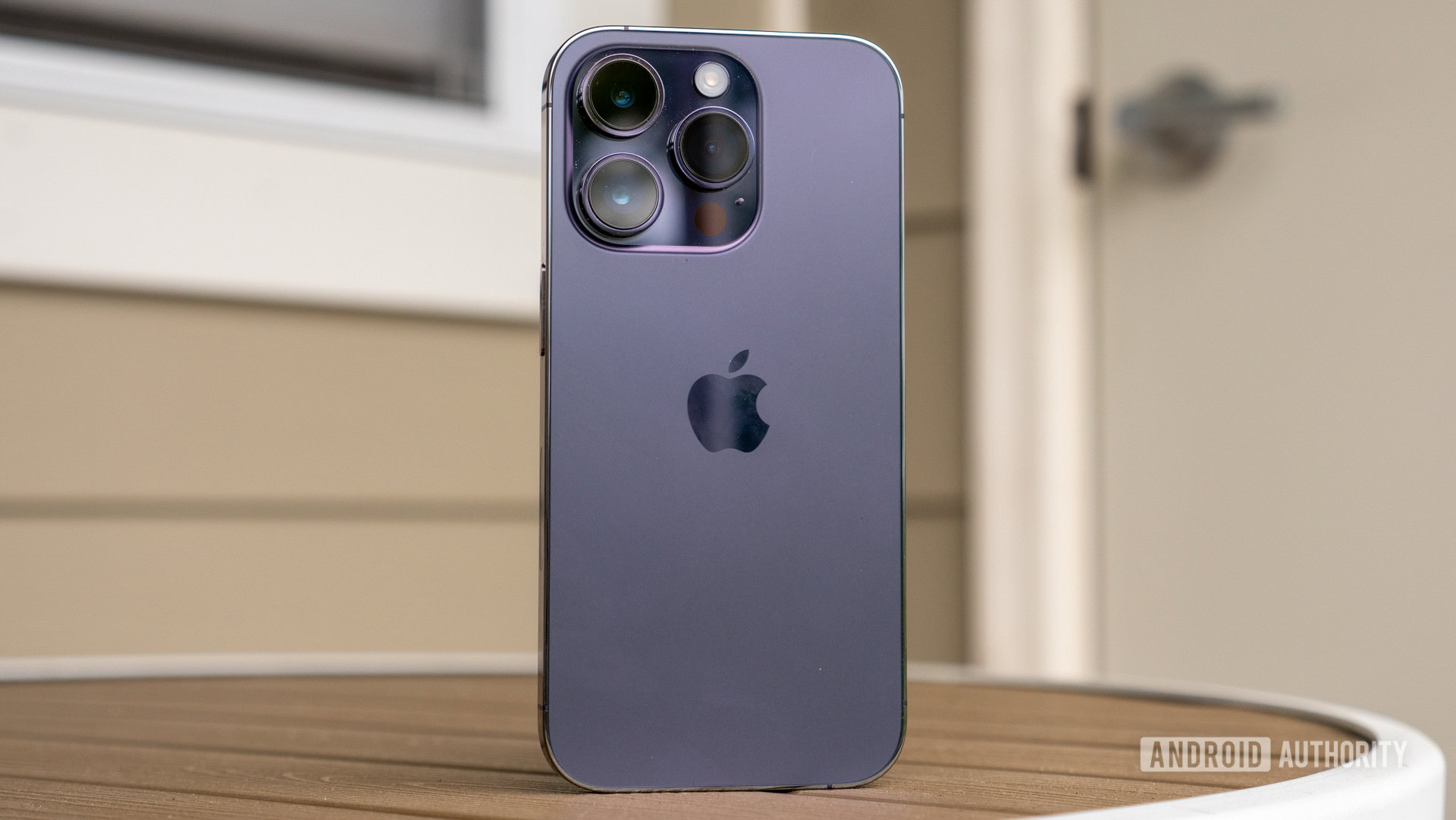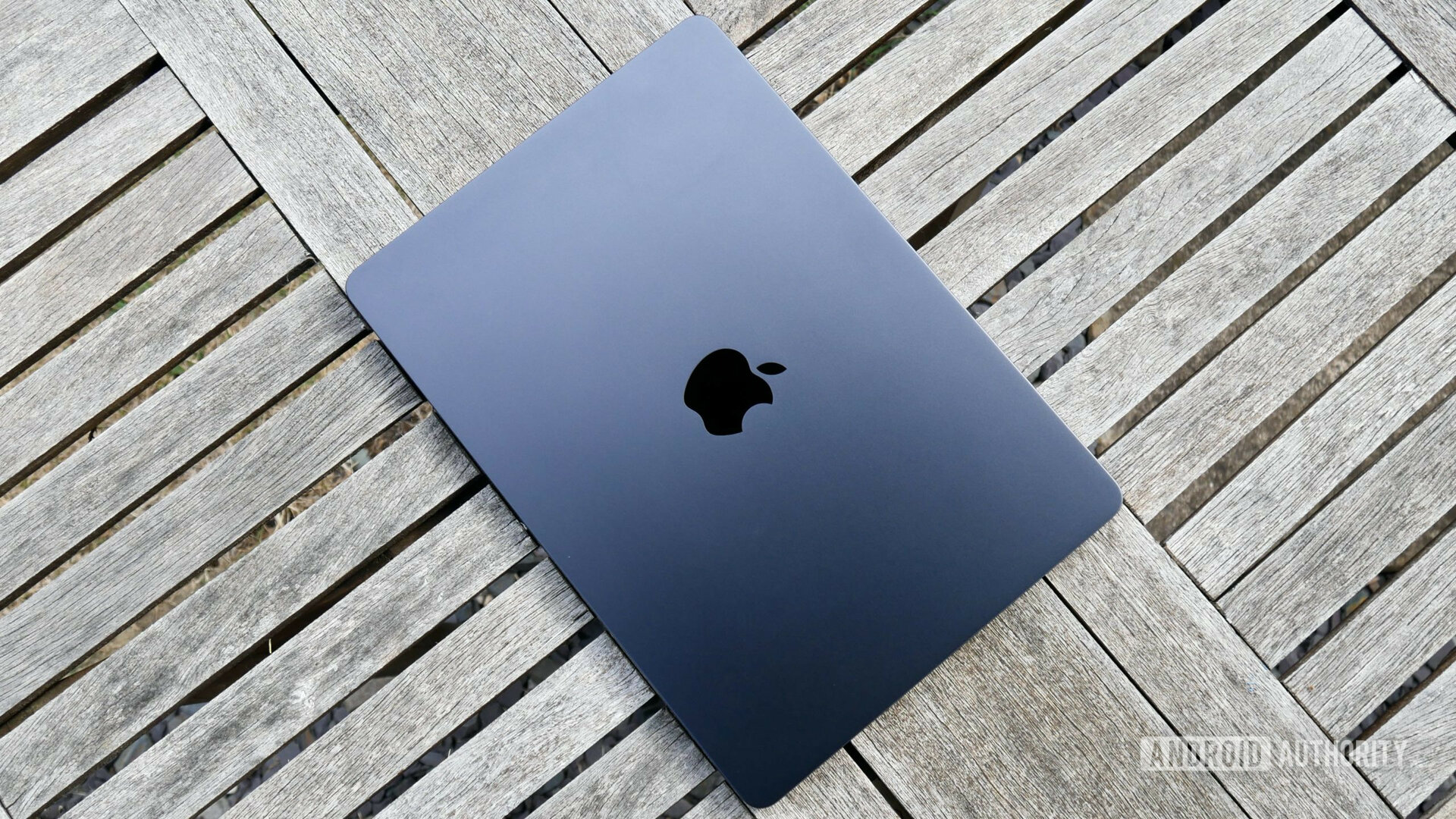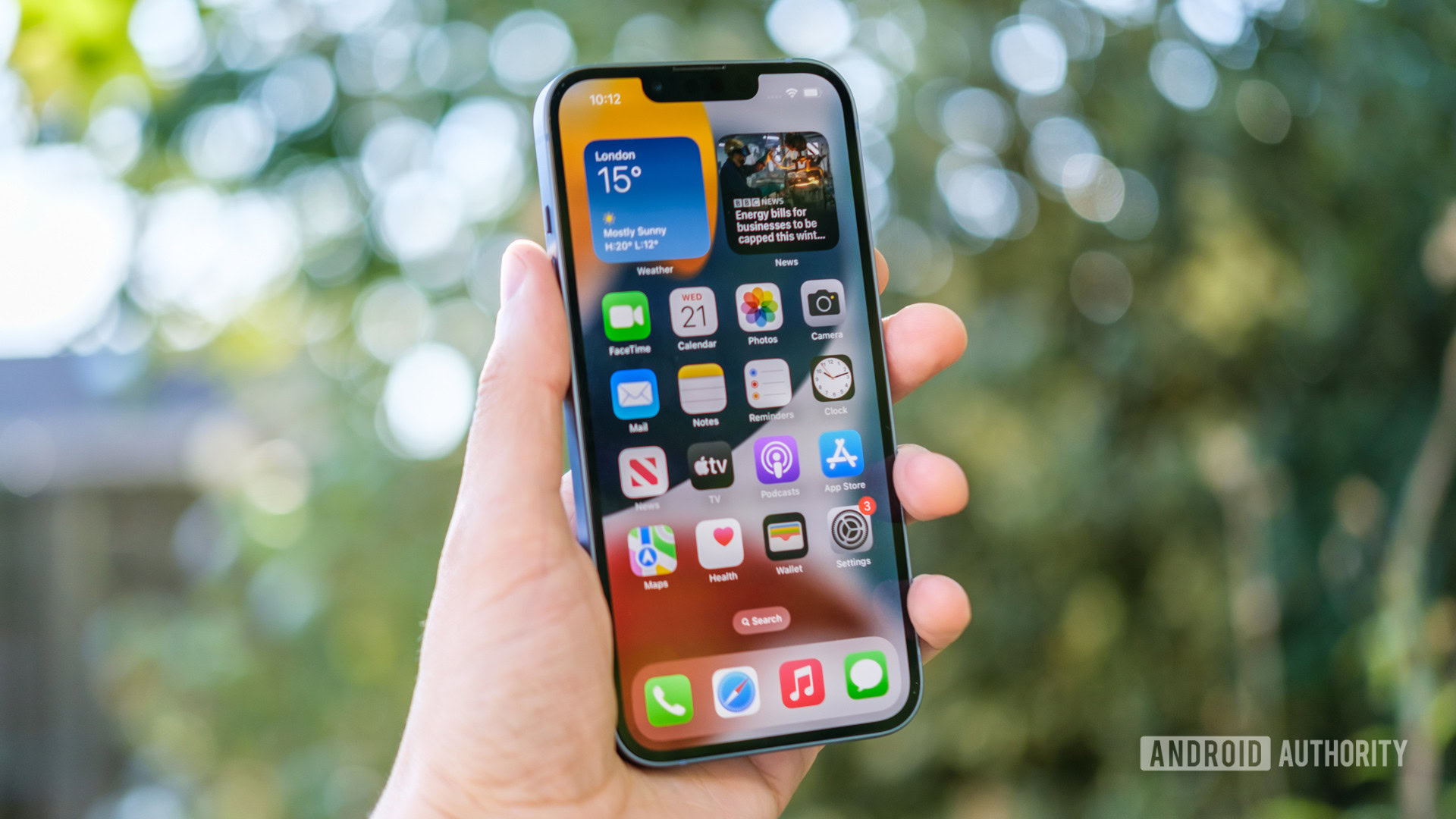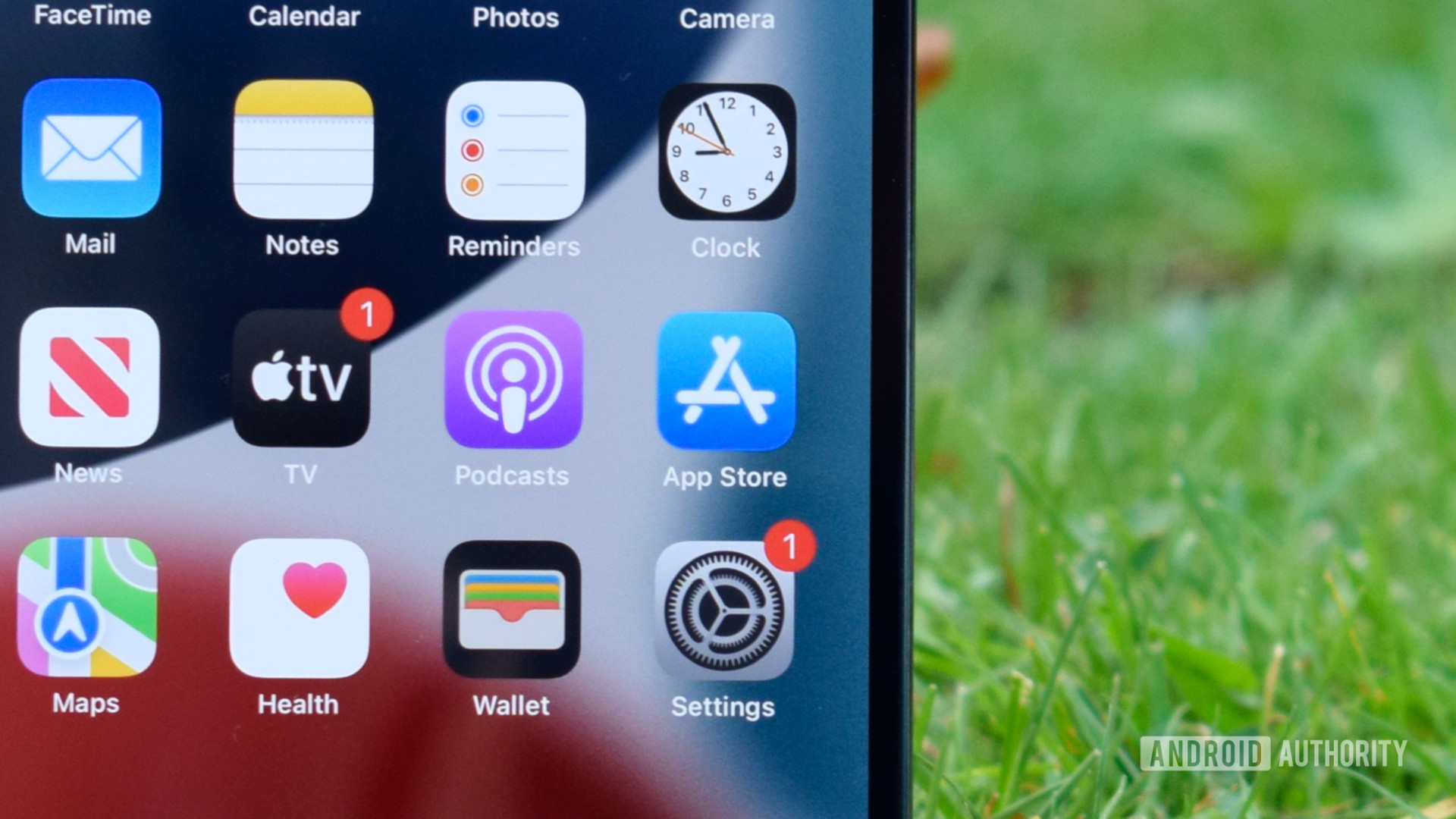Affiliate links on Android Authority may earn us a commission. Learn more.
Do iPhones get viruses? The truth about security on your Apple device

Popular conception has it that Macs and iPhones don’t get viruses. Is that actually true? And how did this idea get started, anyway? We’ll go over what you need to know about security on your Apple devices and how concerned you should be.
How “Macs don’t get viruses” got started

It’s hard to say exactly how and when the idea Macs and iPhones don’t get viruses got started, but they do. It’s likely the idea took hold before the release of the iPhone. Namely, that’s because fewer people own a Mac than a Windows PC, so hackers and other malicious actors focus their efforts on Windows.
Furthermore, it is true that Windows has historically not had great security features — hence the wealth of Windows antivirus software. While this is less true nowadays, for a while, Windows made it easier for bad actors to gain access to sensitive system files and cause havoc. Macs, on the other hand, had stricter security controls a bit earlier on.
Both iPhones and Macs can get viruses and other malware, though the chances aren't high.
On a similar note, how users can get software for both platforms differs. Mac users have had Apple’s Mac App Store since 2011. They can use it to download apps that have gone through a vetting process. This helps keep out malicious software. In contrast, Windows users have plenty of places to download software from all over the web, which means it’s easier for them to come across a bad app disguised as an innocent download. Of course, it’s still possible to download harmful software to a Mac, and Windows users have had the Microsoft Store since 2012, but the out-of-the-box experience is a bit more secure for Apple’s user base.
This is likely how the idea that “Macs don’t get viruses” took hold and persisted with the release of the iPhone. And similar to the iPhone, Android was more popular in the US than the iPhone until 2022. Therefore, it was more lucrative and time-efficient for bad actors to focus on Android. Furthermore, Android isn’t controlled by one company. Google might develop Android, but companies like Samsung and Nothing put their own spins on it, introducing more ways for hackers to get in. Although, now that the two platforms have come closer in numbers, these factors may change.
What types of viruses should iPhone owners look out for?

iPhone users should know that viruses and other forms of malware do exist and may infect their phones. The chances are slim, but it could happen. Many types of malicious software could end up on your phone, but the most common would be malware from an app you download.
Fortunately, iPhone users have the App Store at their disposal. Apple has some strict standards on what developers may upload to the App Store, so it is hard for bad actors to upload nefarious apps. However, it is still possible but unlikely these exist in the App Store, so don’t install anything suspicious. You’re more likely to find bad apps from third-party websites and app stores. This is only a concern if you have jailbroken your iPhone to allow the installation of non-App Store apps, however. Therefore, you should avoid suspicious non-App Store apps and jailbreaking your phone.
You should always be wary of suspicious apps and websites, even on an iPhone.
You’re still susceptible to phishing attempts on an iPhone, too. These include websites that might appear legitimate at first glance but are actually just trying to get your personal information, like credit card numbers and addresses.
It is rarer, though not impossible, to get a virus while browsing the web on your iPhone, too. Hackers have previously exploited vulnerabilities in the iPhone’s software to install spyware on iPhones. While Apple later patched this set of vulnerabilities, other exploits may be possible in the future. If you doubt a website’s credibility, it’s best not to stay on it.
Relatedly, if you ever get a “warning” from a website that your iPhone has a virus or has been hacked, it’s not true. These are scams designed to funnel you to a page asking for information such as credit cards and passwords to steal your money and identity. Don’t even attempt to hit the “X” button. Instead, you should close the entire tab using Safari. Afterward, head to Settings > Safari > Clear history and website data to remove the offending page from your browsing history.
How can I protect my iPhone from viruses or tell if I have one?

While getting a virus on your iPhone might be rare, it is still possible, as mentioned. Fortunately, you can take steps to protect yourself and deal with malware if your iPhone gets compromised.
It may seem obvious, but an important thing to do is install updates as soon as Apple pushes them out. Having the latest iOS version on your iPhone can go a long way in keeping everything secure. Similarly, update your apps to their latest versions, too. You should also avoid installing apps from any source other than the Apple App Store, to begin with.
Also, avoid phishing attempts by ensuring pages such as your banking and other payment portals are legitimate. Don’t trust suspicious websites with your personal information — that includes strange links, suspect emails, or otherwise untrustworthy messages.
Potential signs your iPhone might have a virus
With those important prerequisites in mind, here are some signs your iPhone may have a virus or other form of malware:
- Strange apps: If you see apps on your iPhone you don’t remember installing, that might be a sign of malicious software on your iPhone.
- Poor performance: Malware can eat up your CPU and RAM, making your iPhone run slowly, freeze, crash, or even get excessively hot.
- Suspicious behavior: If you see strange messages in your iMessage, SMS, email, or other out boxes or get weird popups, these could be signs of malware.
- High data usage: Malware might use lots of mobile data because it may communicate with external servers or hackers.
Fixes you can try
If it turns out your iPhone does have malware, here are some steps you can try to rectify the problem:
- Factory reset your iPhone: This option is quick and effective but will wipe out lots of your data. It is also important not to back up anything to iCloud before doing this. You don’t want to unintentionally save and re-install the malware from your iCloud account later. If you want to keep things like photos before the reset, it’s best to email them to yourself instead. Furthermore, be sure to disable Find My iPhone first, too.
- Restore your iPhone from iCloud: If you have saved a previous version of your iPhone’s software to iCloud, you can try restoring this version to your iPhone. But you will have to make a judgment call on whether the old version still has the malware you’re trying to get rid of. You can use this option to eliminate malware if you know the backup doesn’t contain any malware itself.
After removing viruses from your iPhone, you should check to ensure that you have the latest version of iOS installed. If not, update your iPhone right away to ward off future threats.
Frequently asked questions about iPhones and viruses
Yes, but we can’t say how effective any of them might be at detecting threats. It’s also not certain how good they are at actually removing the malware, even if they detect it. It is probably easier and quicker to factory reset or iCloud restore your iPhone instead.
Yes. No technology is immune to hacking, including the iPhone. Don’t share your passwords, and be careful what information you share with third parties about your iPhone. When in doubt, it’s likely best to avoid doing so altogether.